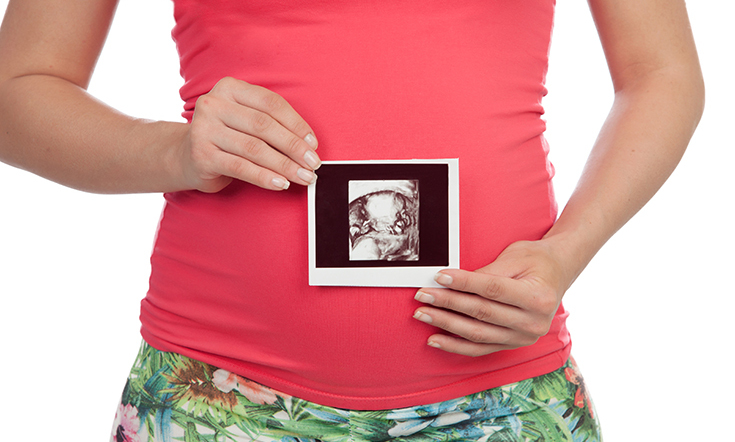

One of the biggest life altering moments is when you first find out that you are pregnant and you begin your first trimester. What exactly is a trimester in terms of pregnancy stages? Basically the 9 months of pregnancy are divided into three equal parts and the first trimester is the first 13 weeks.
3 Weeks Pregnant
What happened to pregnancy week 1 and week 2? Even with all the advancements in modern medicine, the exact moment that you conceived cannot be accurately pinpointed. Once you have had a pregnancy test to confirm that you are indeed pregnant, the due date will be calculated from the first day of your last period and although you have not actually conceived it is still counted as part of the 9 month gestation period. Even though the first trimester is 13 weeks you will only be pregnant for about 11 of those.
Only around 5% of babies are born on their actual due date and that is the reason why you often hear people saying, “My baby was 2 weeks early or 2 weeks late”. The fact is that most babies are born only a few days either side of their actual due date, we just don’t have the technology to know exactly when conception took place.
From the moment you actually conceive to the end of your 1st trimester your body and baby will undergo some amazing changes, not all of them will be pleasant for you. Although you will not notice much in the way of outer physical changes during the first trimester, the developments that are going on inside your womb are miraculous.
From the time that you become pregnant, your body will increase production of progesterone, which prevents the body form shedding your uterus lining. This increased level of progesterone will stop around 6 weeks when the placenta is developed enough. Pregnancy symptoms like tingling and tenderness of the breasts are caused by the high levels of progesterone that are produced during the early stages of the first trimester.
Progesterone, also responsible for the extra fat that is associated with pregnancy, helps to relax your muscles to prevent premature labour and allows your baby to “eat” from glycogen deposits; however it is also the main cause of constipation, indigestion and nausea. Your immune system will become suppressed to ensure that the body does not expel the baby thinking it is a foreign object and therefore you will be more likely to catch a cold or any other bug that is flying around.
7 Weeks Pregnant
By the time you have reached this stage of the first trimester your baby has gone through some amazing transformations. What started out as an egg and sperm collision is now rapidly taking on all the features of a tiny little baby. The placenta and umbilical cord is developed enough now to provide oxygen, essential nutrients and expel waste that your baby is producing.

At this stage of pregnancy the embryo is only about 7mm long but already has a heart that beats and pumps around 150 times per minute and your baby already has tiny arms and legs, although the elbow and knee joints are still forming. The eyes, lungs, kidneys and spine are now starting to be formed as well as the nose, lips and tongue. For something that has only been growing for 7 weeks that is quite impressive, but the fact that it is only the size of a cherry makes it absolutely incredible.
By now you may be experiencing some of the side effects that many women get when pregnant. The most common ailment is morning sickness, although the term is misleading and sometimes can last all day. The majority of woman will experience some degree of morning sickness with a few developing Hyperemesis Gravidarum (severe morning sickness) which could mean a couple of days in the hospital due to dehydration. There is no real medical evidence proving what causes morning sickness, but the best guess is due to the increase of the hormone, Human Chorionic Gonadtrophin (HCG), which stimulates your ovaries into producing the higher levels of progesterone.
The most common tips for help with morning sickness are:
- Don’t go for long periods during the day without eating and have many small meals rather than a few big ones.
- Fatty and spicy foods should be avoided altogether.
- Ginger is known to help, whether it is ginger biscuits, beer, tea or capsules that you can buy from the local health store.
- Cracker biscuits are another tip that most women have said helped ease the queasiness.
12 Weeks Pregnant
Your first trimester is almost over now and the second trimester, which is only a week away, is the time that most women say was the most enjoyable throughout their pregnancy. By now you should have a good idea of what to expect for the remainder of your pregnancy. Your body will still go through a lot of changes in the months ahead but by now the majority of women are more relaxed and are getting used to the difficulties that come with being pregnant.
By the end of the first trimester your baby looks and functions just like a real little baby. The kidneys are fully operational and urine is passed through the bladder. Its little fingers are fully developed and have their own little unique set of finger prints. Although your baby can move now and even curl up it is unlikely that you will feel these tiny movements yet. The sex organs are distinguishable by the end of the first trimester and you could find out if you are having a boy or girl at this stage. From now until the end of the third trimester the only thing left for your baby to do is grow and mature.
From the time you were 7 weeks pregnant to now you have probably gone through various wild mood swings, noticed your breasts growing, maybe seen your tummy grow a bit and probably had some constipation problems. During the 2nd trimester many women panic as a lot of these symptoms disappear and things quieten down ready for the final burst of growth in the third trimester, but this is entirely normal.
It is now time to treat yourself to a shopping spree for some maternity clothes as your body will start to get bigger much faster from now on. Take some time to pamper yourself as you have done great getting through the first trimester.






















